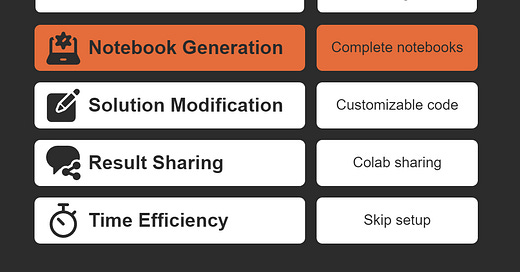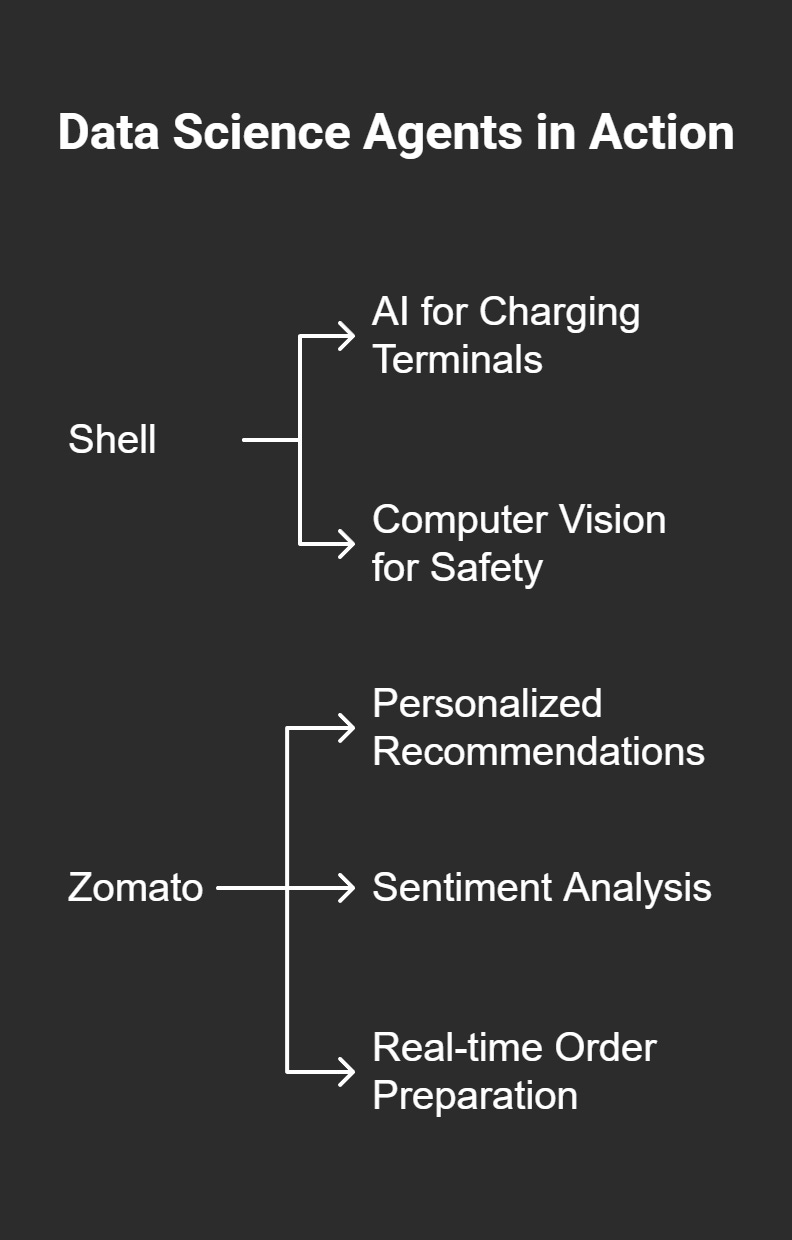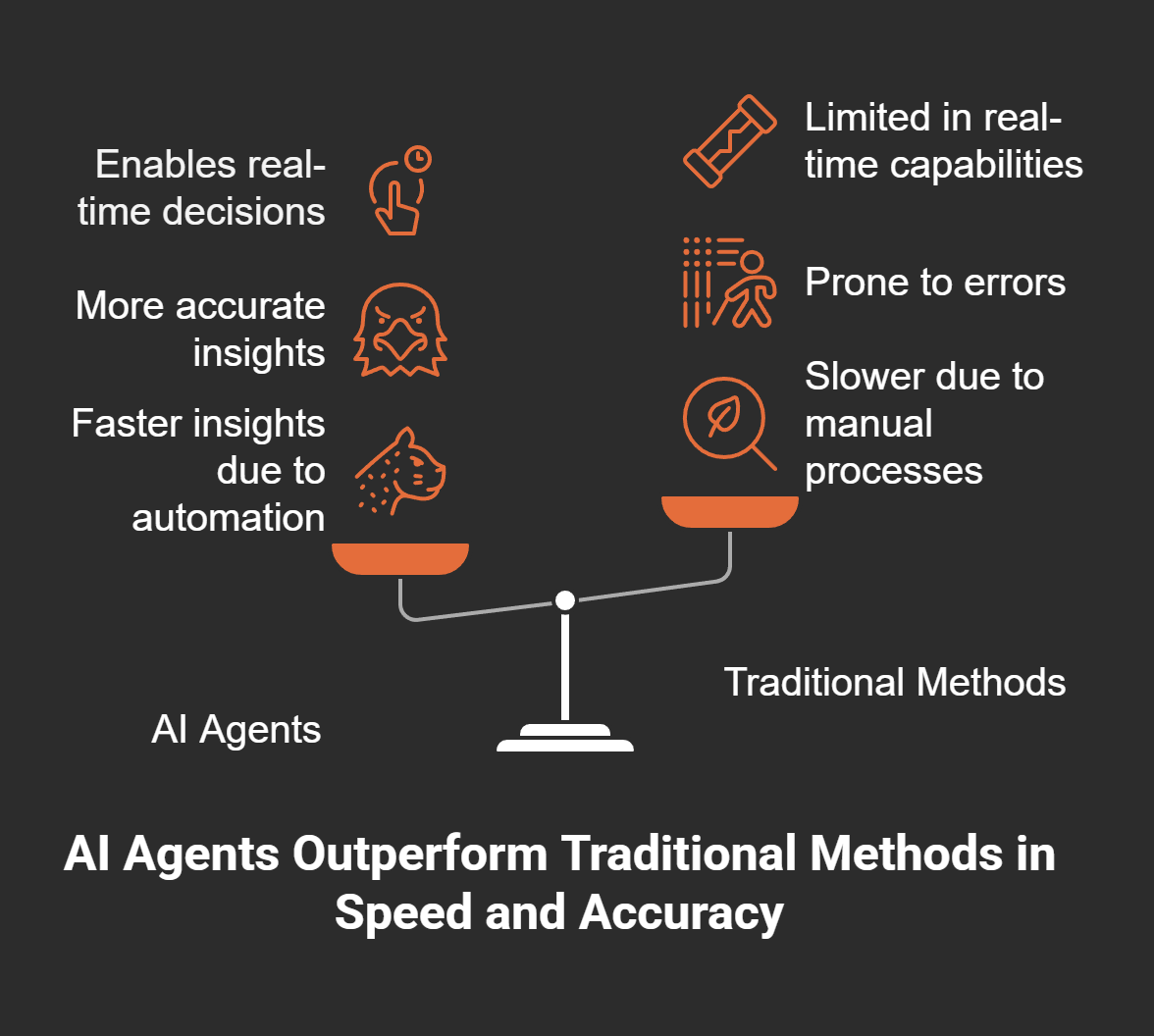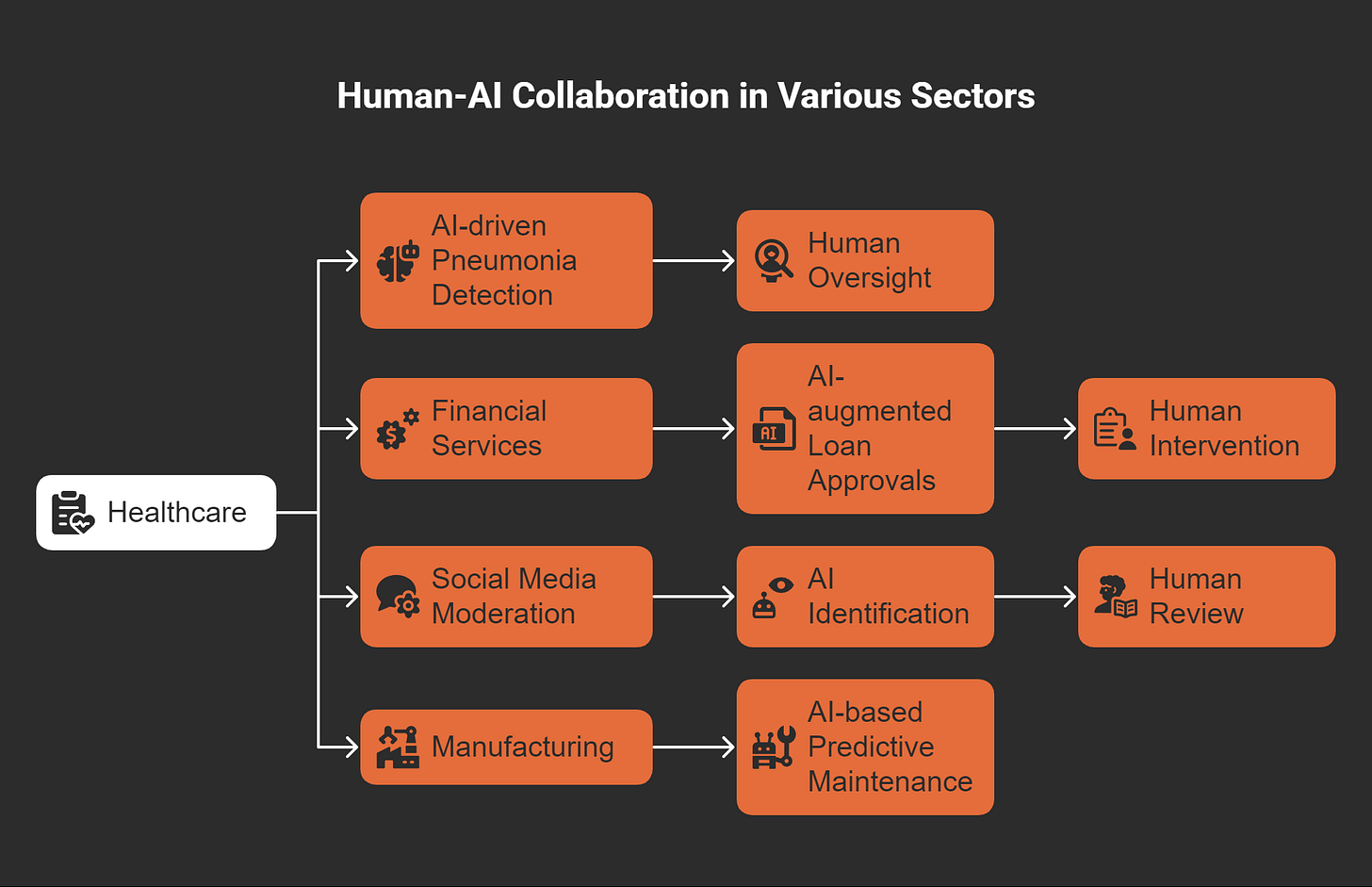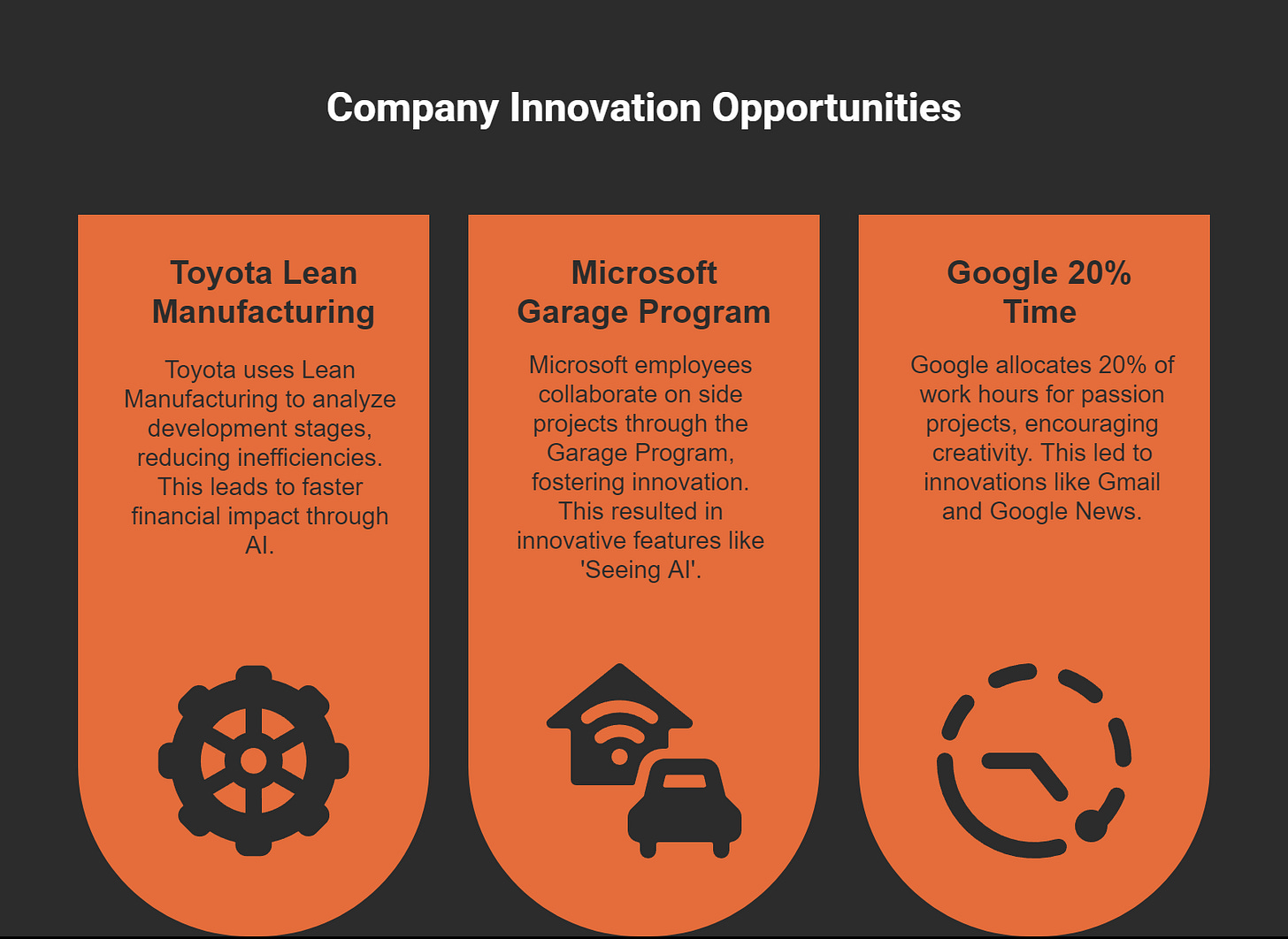How Data Science Agents Are Transforming the Role of Data Scientists
Imagine a world where you no longer spend hours coding or troubleshooting pipelines. With tools like Google’s Data Science Agent, that world is already here. These AI-powered tools are transforming how data scientists work. Instead of focusing on repetitive tasks, you can now collaborate with these agents to dive deeper into strategy and innovation.
This shift doesn’t mean your role is disappearing. It’s evolving. As companies adopt smarter tools, they expect you to adapt. AI frees you from routine work, letting you focus on complex problems and creative solutions. The future isn’t about replacement—it’s about redefinition.
Key Takeaways
Data Science Agents handle boring tasks, so data scientists can plan and create.
These AI tools help get work done faster and find answers quickly.
Working with Data Science Agents helps data scientists think smart and solve problems.
Learning new AI tools is important to keep up with changes in data science.
Good communication is key to sharing ideas and working well with others.
Understanding Data Science Agents
What are Data Science Agents?
You’ve probably heard the buzz about Data Science Agents, but what exactly are they? Think of them as your personal assistants for data tasks. These tools are designed to handle everything from data manipulation to visualization, all through simple natural language commands. They rely on advanced Large Language Models (LLMs) to generate and execute code, making them incredibly versatile. What’s even cooler? They can understand the context of your data and adjust their outputs accordingly. This means you spend less time troubleshooting and more time analyzing.
In today’s fast-paced world, traditional methods of data analysis often fall short. Businesses need faster, smarter solutions to keep up with market changes. That’s where Data Science Agents come in. They transform historical data into actionable insights, helping you make decisions that align with current trends. As Matt Dancho points out, these tools are reshaping the field, paving the way for a new kind of data scientist—one who collaborates with AI to tackle complex challenges.
Key features and capabilities
Data Science Agents come packed with features that make your life easier. Here’s a quick look at what they offer:
These agents also simplify complex tasks, making data science more accessible. They excel in planning, reasoning, and even multi-agent collaboration. Whether you’re a beginner or an expert, these tools lower the barriers to entry and boost productivity.
Examples of Data Science Agents in action
Curious about how these agents work in real life? Let’s look at some examples:
These examples show how Data Science Agents are already making a difference. From optimizing operations to enhancing customer experiences, the possibilities are endless.
Benefits of Data Science Agents
Boosting productivity and efficiency
Imagine cutting your project timelines in half. That’s what Data Science Agents bring to the table. These tools streamline workflows, letting you focus on the big picture instead of getting bogged down in the details. Whether it’s automating data preprocessing or generating insights, they save you time and resources.
Here’s how they deliver measurable results:
Cost Efficiency: Projects completed with AI agents often cost less than traditional methods.
Resolution Speed: Tasks that used to take hours—or even days—are now completed in minutes.
Revenue Impact: Faster insights lead to better decisions, which can boost sales or improve service offerings.
With these metrics, you can see how Data Science Agents redefine productivity and efficiency in your workflow.
Automating repetitive tasks
Let’s face it—repetitive tasks can drain your energy. Importing libraries, cleaning data, and setting up boilerplate code are necessary but tedious. Data Science Agents handle these tasks for you, freeing up your time for more meaningful work.
For example, Google’s Data Science Agent automates notebook generation. You simply describe your goals, and the agent creates a fully executable notebook. No manual coding required. This automation doesn’t just save time; it also reduces errors, ensuring your workflows run smoothly.
Tip: Use automation to focus on analysis and strategy rather than configuration. Let the agent handle the grunt work while you tackle the creative challenges.
Accelerating insights and decision-making
Speed matters when it comes to decision-making. Data Science Agents excel at turning raw data into actionable insights faster than traditional methods. They automate processes, detect patterns, and even enable real-time decision-making.
These tools don’t just speed things up—they improve accuracy and scalability. By continuously learning from new data, they refine predictions and help you make smarter decisions. Whether you’re optimizing operations or identifying market trends, Data Science Agents give you the edge you need.
Limitations of Data Science Agents
Handling complex and nuanced problems
While Data Science Agents excel at automating routine tasks, they often stumble when faced with intricate challenges. Complex problems, like multi-step reasoning, can overwhelm these tools. The reasoning process may lead to an exponentially growing search space, increasing the likelihood of errors. For example, solving open-ended problems without predefined outcomes makes result verification tricky.
Additionally, these agents lack the domain expertise needed to navigate nuanced data. You might find that applying the right modeling techniques still requires your specialized knowledge. Even with advanced algorithms, interpreting results in a meaningful way can be difficult, especially for non-technical stakeholders.
Note: These tools are powerful, but they’re not a substitute for your expertise. They work best as collaborators, not standalone problem-solvers.
Dependence on human oversight and high-quality data
AI tools, including Data Science Agents, rely heavily on human oversight to ensure their outputs align with ethical and practical standards. Without your guidance, these agents might produce results that are technically correct but misaligned with real-world needs. Techniques like hybridization and rater assistance highlight how human-AI collaboration improves oversight and evaluation.
Data quality is another critical factor. Incomplete or biased datasets can lead to flawed analyses and misguided decisions. For instance, if sensitive data isn’t properly secured, it could be misused, creating ethical and legal concerns. High-quality data and robust security measures are essential to mitigate these risks.
Ethical and interpretability challenges
Ethical concerns often arise when using AI tools. Issues like fairness, bias, and transparency can complicate their implementation. For example, Amazon’s recruitment algorithm was abandoned after it showed gender bias, even though gender wasn’t explicitly included in its training data. This case underscores the difficulty of ensuring fairness in complex models.
Interpretability is another hurdle. While simpler algorithms are easier to explain, they may sacrifice accuracy. On the other hand, advanced models can deliver precise predictions but often lack transparency. To address these challenges, you can use tools for fairness evaluation, bias mitigation, and transparency. Continuous monitoring and ethics-first designs also play a crucial role in building trust with these systems.
The Evolving Role of Data Scientists
From technical execution to strategic thinking
The role of data scientists is no longer just about crunching numbers or building models. It’s evolving into something much bigger—strategic thinking. With tools like Data Science Agents automating repetitive tasks, you now have the freedom to focus on the "why" behind the data instead of just the "how." This shift means you’re not just a technical expert anymore; you’re a decision-maker who drives business strategies.
Recent surveys highlight this transformation. For example, PwC’s report emphasizes treating data as a strategic asset. It’s not just about analyzing datasets but integrating them across departments to unlock their full potential. Companies are now investing in data integration as a core capability, which shows how much they value strategic insights over technical execution.
You’re also seeing new roles emerge in the field. Titles like "AI Strategist" or "Business-AI Translator" are becoming common. These roles focus on mapping business challenges to AI solutions, making your work more impactful. Instead of just building models, you’re orchestrating AI systems and ensuring they align with organizational goals. This evolution reflects a broader trend: data scientists are becoming architects of strategy, not just executors of tasks.
Human-in-the-loop collaboration with AI tools
AI tools are powerful, but they’re not perfect. That’s where you come in. Human-in-the-loop collaboration ensures that AI systems deliver the best results by combining their speed and efficiency with your expertise and judgment. Think of it as a partnership—you and the AI working together to solve problems more effectively.
Let’s look at some real-world examples of this collaboration:
These examples show how your role as a data scientist is evolving. You’re not just a coder or analyst anymore. You’re a collaborator who ensures AI tools like Data Science Agents deliver meaningful and accurate results. By staying involved in the process, you add a layer of critical thinking that machines can’t replicate.
Opportunities for creativity and innovation
With AI handling the heavy lifting, you now have more room to innovate. This shift opens up opportunities to explore creative solutions and tackle problems in new ways. Companies like Google and Microsoft are already leveraging this approach. For instance, Google’s famous "20% time" policy allows employees to work on passion projects, leading to innovations like Gmail and Google News. Similarly, Microsoft’s Garage Program encourages employees to collaborate on side projects, resulting in groundbreaking tools like "Seeing AI."
Here’s how AI collaboration fuels creativity:
You can take inspiration from these examples. By embracing AI tools, you can focus on brainstorming, experimenting, and creating solutions that truly stand out. Whether it’s developing a new algorithm or finding a unique way to visualize data, the possibilities are endless. AI doesn’t limit your creativity—it amplifies it.
Skills for Thriving Alongside Data Science Agents
Importance of domain expertise and critical thinking
To thrive alongside AI tools, you need more than technical skills. Domain expertise and critical thinking are your secret weapons. Why? Because understanding the context of your data helps you ask the right questions and interpret results accurately. Without this foundation, even the most advanced AI tools can lead you astray.
For example, if you're analyzing healthcare data, knowing the nuances of medical terminology and patient care can make all the difference. It’s not just about crunching numbers; it’s about understanding what those numbers mean in the real world. Critical thinking helps you connect the dots, spot inconsistencies, and solve problems logically.
Data analysts often act as problem solvers, using data to tackle complex challenges.
The Venn diagram of data science highlights the intersection of computer science, statistics, and domain knowledge, showing why expertise in your field is essential.
Policy analysts, for instance, rely on domain knowledge to interpret data science methods effectively.
When you combine domain expertise with critical thinking, you become more than a data scientist—you become a trusted advisor who can turn raw data into actionable insights.
Tip: Always aim to deepen your understanding of the industry you work in. The more you know, the better equipped you'll be to guide AI tools toward meaningful outcomes.
Proficiency in AI and automation tools
AI and automation tools are reshaping the data science landscape. To stay ahead, you need to master these technologies. It’s not just about knowing how to use them—it’s about understanding how they work and how to make them work for you.
Modern AI tools, like machine learning algorithms, don’t just process data. They learn from it and make decisions with minimal human input. This means you need to grasp concepts like reasoning and decision-making, not just data processing. Staying updated on AI developments is crucial. It ensures your skills remain relevant in a rapidly evolving field.
Key areas of study include machine learning, natural language processing, and data visualization.
AI tools are becoming smarter, but they still need your guidance to align with business goals.
Proficiency in these tools future-proofs your career and enhances your ability to deliver impactful results.
Think of AI as your co-pilot. It handles the repetitive tasks, but you’re still in charge of the journey. By mastering these tools, you can focus on strategy, creativity, and innovation.
Note: Don’t just learn how to use AI tools—learn how to customize and optimize them. This will set you apart in the competitive world of data science.
Communication and storytelling skills
Data science isn’t just about numbers; it’s about telling stories. Your ability to communicate insights clearly can make or break a project. Stakeholders often lack technical expertise, so it’s your job to bridge the gap. This is where storytelling comes in.
Imagine presenting a complex analysis to a room full of executives. If you dive straight into technical jargon, you’ll lose them. But if you frame your findings as a story—complete with context, challenges, and solutions—you’ll capture their attention. Paulina Davila from JPMorgan Chase calls this "world building." It’s about creating a narrative that aligns everyone toward a common goal.
Data science user stories are another great example. They help ensure that everyone, from data scientists to stakeholders, understands the purpose and value of a project. Misunderstandings can derail even the best initiatives, so clear communication is key.
Pro Tip: Practice explaining your findings to non-technical friends or family. If they understand, you’re on the right track.
Strong communication skills don’t just help you present your work. They also foster collaboration, build trust, and ensure your insights drive real-world impact.
Adapting to the Future with Data Science Agents
Lifelong learning and upskilling
Staying ahead in data science means embracing lifelong learning. Technology evolves fast, and so do the skills you need to thrive. A report from the World Economic Forum highlights that nearly half of all employees will need reskilling by 2025. That’s a wake-up call. Whether it’s mastering machine learning or diving into data analytics, continuous learning keeps you relevant and ready for new challenges.
You don’t have to tackle this alone. Online courses, workshops, and certifications make it easier than ever to upskill. Platforms like Coursera and LinkedIn Learning offer flexible options tailored to your schedule. Even free resources, like Google Colab tutorials, can help you sharpen your skills. The key is to stay curious and keep exploring. Every new skill you learn adds value to your career and opens doors to exciting opportunities.
Tip: Set aside time each week for learning something new. Small, consistent efforts can lead to big changes over time.
Building collaborative mindsets with AI tools
Working with AI tools isn’t just about using them—it’s about collaborating effectively. Think of AI as your teammate, not just a tool. When you approach it with a collaborative mindset, you unlock its full potential. You bring the creativity and critical thinking, while the AI handles repetitive tasks and speeds up processes.
Start by understanding how these tools work. Dive into their capabilities and limitations. For example, Google’s Data Science Agent can automate workflows, but it still needs your input to align with business goals. By combining your expertise with AI’s efficiency, you create a partnership that drives better results.
Collaboration also means sharing insights with your team. AI tools make it easier to visualize data and communicate findings. Use this to foster teamwork and spark discussions. When everyone works together, you achieve more.
Staying informed about industry trends
The data science field moves quickly, and staying informed is crucial. New tools, techniques, and technologies emerge all the time. Keeping up with these trends helps you stay competitive and adapt to changes. Follow industry blogs, attend webinars, and join professional communities to stay in the loop.
Social media platforms like LinkedIn and Twitter are great for tracking trends. Many experts share insights and updates regularly. You can also subscribe to newsletters from organizations like Kaggle or Towards Data Science. These resources keep you updated on everything from AI advancements to best practices in data analysis.
Pro Tip: Bookmark a few trusted sources and check them weekly. Staying informed doesn’t have to be overwhelming—it’s about consistency.
By embracing lifelong learning, building collaborative mindsets, and staying informed, you’ll be ready to adapt to the future of data science. The tools may change, but your ability to learn and innovate will always keep you ahead.
Data Science Agents are here to help, not replace you. They handle the repetitive stuff, giving you more time to focus on strategy and creativity. Your role as a data scientist is evolving into something more impactful—shaping decisions and driving innovation.
Over time, the value of experience becomes clear. While Ph.D. holders start with higher salaries, professionals with master’s or bachelor’s degrees often see faster growth after six years. By the ten-year mark, salaries across these groups level out, showing that expertise and adaptability matter more than titles.
By embracing these tools and staying curious, you’ll remain essential in the ever-changing world of data science.
FAQ
What are Data Science Agents, and how do they work?
Data Science Agents are AI-powered tools that automate tasks like data preprocessing, visualization, and model building. You describe your goals in plain English, and the agent generates code and executes workflows. They simplify processes, letting you focus on insights and strategy.
Can Data Science Agents replace data scientists?
No, they can’t replace you. These tools handle repetitive tasks, but your expertise is essential for interpreting results, solving complex problems, and making strategic decisions. Think of them as collaborators that enhance your productivity, not replacements.
Do I need coding skills to use Data Science Agents?
Not necessarily! Many agents, like Google’s Data Science Agent, work through natural language commands. You describe what you need, and they generate code for you. However, basic coding knowledge helps you customize and refine outputs.
Are Data Science Agents suitable for beginners?
Absolutely! These tools lower the barrier to entry by automating complex tasks. Beginners can focus on learning data analysis and strategy without worrying about coding. They’re great for building confidence and accelerating learning.
How can I start using a Data Science Agent?
It’s easy! Open a Google Colab notebook, upload your dataset, and describe your goals in the Gemini side panel. The agent will generate code and run the analysis for you. You can tweak the notebook to fit your needs.

